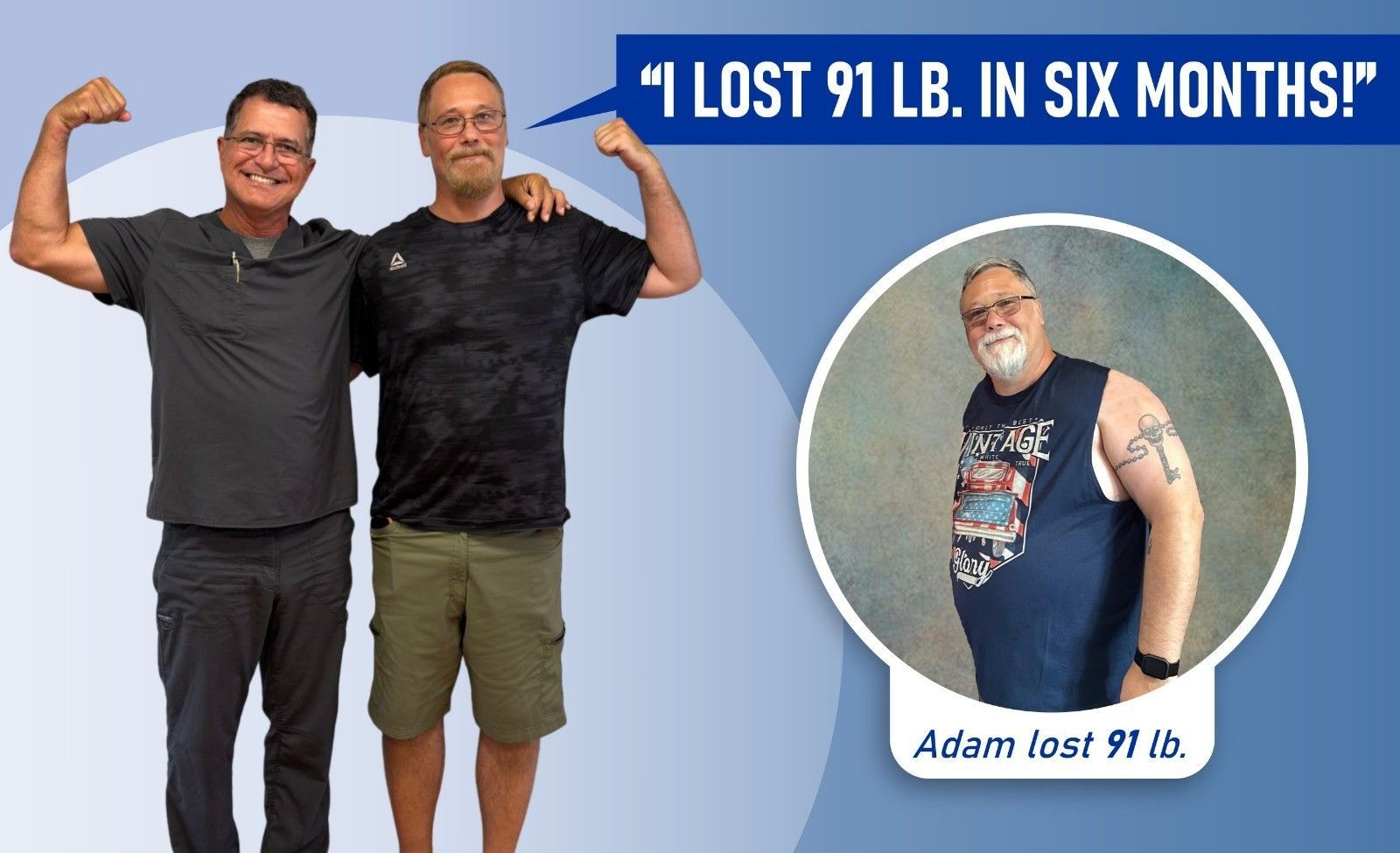Weight Loss Surgery in Jacksonville, Florida
Dumping Syndrome After Weight Loss Surgery
Weight loss surgeries, such as lap band, sleeve gastrectomy and gastric bypass surgery, are effective obesity treatments that can aid in weight loss and help patients to live healthier lives. However, following some bariatric procedures permanent changes in anatomy result in changes in how your body handles food resulting in uncomfortable side effects if not managed properly.
One such problem that may occur following the gastric bypass weight loss surgery is known as dumping syndrome.

List of Services
-
Dumping Syndrome BasicsList Item 1
Dumping syndrome is the name given to a group of uncomfortable symptoms that occur when food moves out of the stomach and into the intestines too quickly. It is most commonly seen among patients who have had a weight loss surgery in which part of the stomach was removed or bypassed. It is also commonly seen after excess carbohydrate or sugars are consumed. The immediate symptoms of dumping syndrome may include:
- Fatigue
- Increased heart rate
- Dizziness
- Lightheadedness
- Bloating
- Cramping
- Abdominal pain
- Vomiting
- Nausea
For most people, these symptoms appear within the first half-hour after eating a meal. However, some patients don’t experience any problems until one to three hours have passed. Patients with late-onset dumping syndrome often have different symptoms, which may include confusion, fainting, anxiety, heart palpitations, dizziness and sweating. In addition, a small proportion of patients with this condition may experience both immediate and late-onset symptoms.
-
How to Prevent Dumping SyndromeList Item 2
After gastric bypass surgery lifestyle changes are required in order to maximize the benefits of the procedure and prevent problems such as dumping syndrome. The following measures may be effective in preventing dumping syndrome:
- Avoid foods that contain large amounts of sugar and processed carbohydrates.
- Don’t drink liquids while eating.
- Eat smaller, more frequent meals throughout the day.
-
What to Expect
Over time, episodes of dumping syndrome should become less frequent or disappear completely. For most people, making the simple changes listed above can alleviate the symptoms of dumping syndrome until the body adjusts to its new digestive process.
If you continue to have problems with dumping syndrome even after following the tips above, talk to Dr. Baptista. Frequent episodes of dumping syndrome can lead to nutritional deficiencies, and medication may be required. Medications that are commonly used to treat this problem include antidiarrheal drugs and drugs that slow down digestive processes.
Health Issues After Surgery Resources
Patient Success Stories







